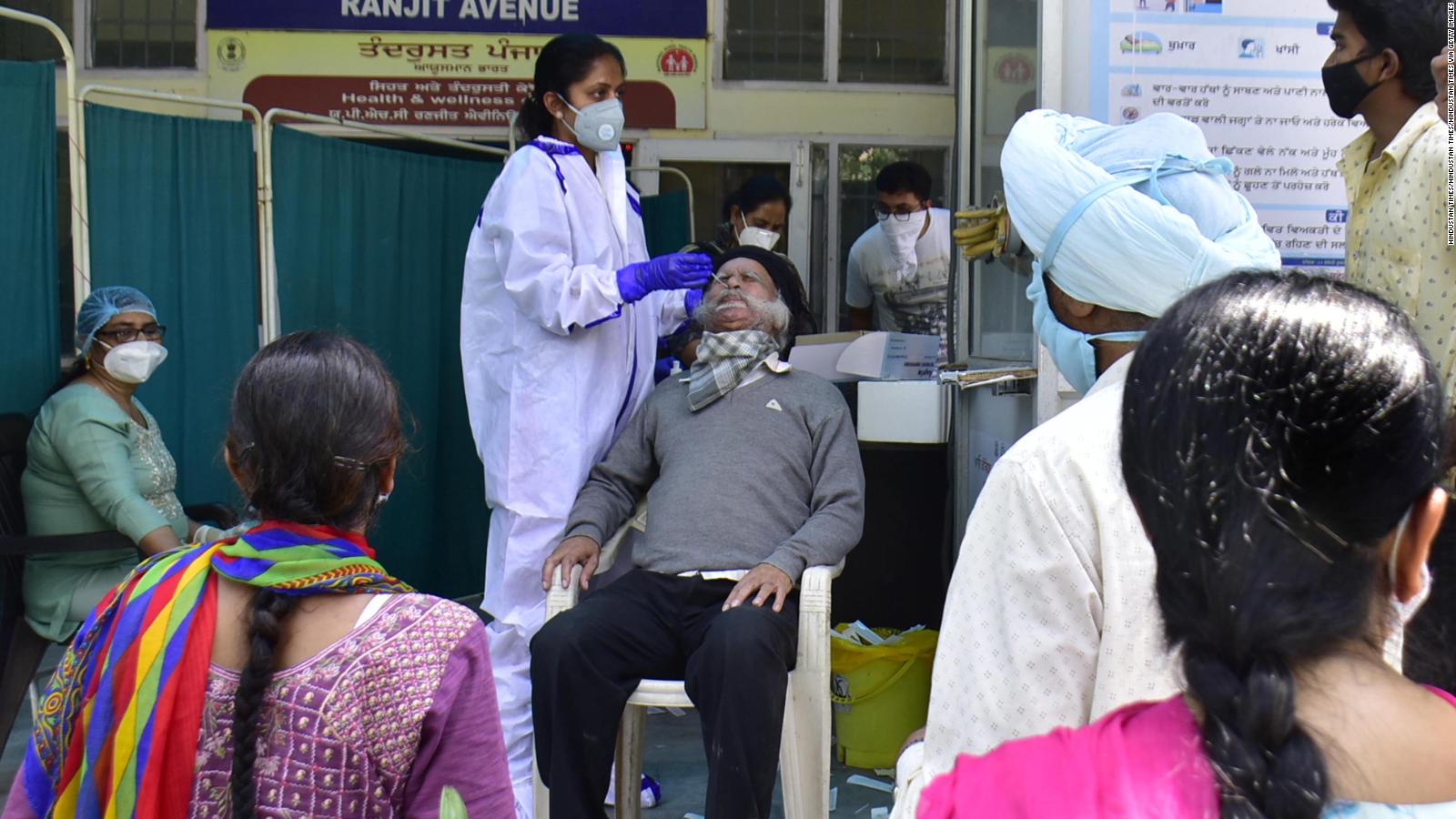They fear that the number of infections in India is higher 1:09
(CNN Spanish) -
There is no doubt: India is going through the worst covid-19 outbreak in the world.
Hospitals overwhelmed.
Lack of medical oxygen.
Slow roll out of vaccination.
And numbers of deaths and infections that do not stop increasing.
For example, India registered 368,147 new infections on Monday and 3,417 new deaths from covid-19 on Sunday.
This death toll is the highest to date for a single day in the Asian country.
Devastating COVID-19 crisis in India - Prime Minister Narendra Modi could have prevented it, critics say.
But he didn't
Vaccination in the country progresses slowly due to dose supply problems, among other factors.
So far, the nation has vaccinated 2% of its entire population with a complete schedule, which amounts to 1.3 billion inhabitants.
This figure is devastating if one takes into account that vaccination is one of the best weapons to face the pandemic.
A few days ago, Dr. Anthony Fauci, America's leading infectious disease expert, said there is data showing that Covaxin, a COVID-19 vaccine from India, neutralized variant B.1.617, first found in this country.
advertising
And, precisely because of the health crisis that plagues the Asian country, variant B.1.617 is the one that now monopolizes international attention.
At the moment, it is not the predominant one in India, but an increase in cases has been observed in various places.
“In Maharashtra we saw it go up (variant B.1.617), we saw an outbreak.
In Delhi we saw that it has increased and we observed an outbreak.
These are very important epidemiological correlations, ”said Anurag Agrawal, director of the Institute for Genomics and Integrative Biology (IGIB) in India.
First cases of the covid-19 variant identified in India detected in Spain
Here's what you need to know about variant B.1.617 that was found in India.
What is the Indian variant of covid-19?
Simply put, variant B.1.617 is a transformation of the SARS-CoV-2 virus that causes covid-19 disease.
It is normal for viruses to change.
And they do this through mutations, according to the US Centers for Disease Control and Prevention (CDC).
“Viruses are constantly changing through mutation, and new variants of the virus are expected to appear over time.
Sometimes new variants emerge and then disappear.
At other times, new variants emerge and persist, "the CDC explains.
At the beginning, variant B.1.617 was called a “double mutant”, although this is not entirely correct, since mutations are characteristic of variants.
In fact, several of them have dozens of mutations.
Mutations of the Indian variant
In this sense, there are two mutations identified in variant B.1.617: L452R and E484Q.
The L452R mutation is also found in variants B.1.427 and B.1.429 first detected in California, which have some degree of immunological resistance.
The E484Q mutation is probably similar to another mutation called E484K, which is associated with the B.1.351 variant first detected in South Africa.
The three previous paragraphs were taken from the GUIDANCE wire: What we know about B.1.617, the variant first identified in India
When was it found?
Variant B.1.617 was first detected in India in December 2020.
However, this variant was reported only on March 24, after the Indian Ministry of Health said that the L452R and E484Q mutations had not been detected before December in sample analysis.
“These mutations give the virus an immunological escape and a greater contagion capacity.
They have been found in around 15-20% of the samples and do not coincide with any variant previously classified as of concern ”, detailed the Indian agency in a statement.
Is it more contagious?
As mentioned in previous paragraphs, the mutations found in variant B.1.617 give the virus some resistance to the immune system and increase its contagion capacity.
However, to date it is not known with certainty if this variant is the one that has unleashed the large number of infections and deaths from covid-19 in India.
One of the reasons that this is not certain is that there is not enough genomic surveillance in India to make that determination.
In order to assess the status of variants that occur in a country, experts believe that 5-10% of all COVID-19 test samples should be genetically sequenced.
According to Dr. Ashish Jha, Dean of the School of Public Health at Brown University, India has only sequenced less than 1% of cases.
Arrival in other countries and travel restrictions
Variant B.1.617 is already found in other parts of the world, according to health authorities.
Spain confirmed its first four cases of the variant detected in India over the weekend.
Of these infections, three have been registered in the Galician city of Vigo and correspond to crew members of a cargo ship that is docked and quarantined in the port of the city.
The fourth case was notified this Sunday by the Junta de Extremadura.
For their part, the Mexican authorities reported that the first case of contagion of covid-19 with the variant identified in India was detected in the state of San Luis Potosí - in the north-central region of the country.
The French Ministry of Health also confirmed its first cases with variant B.1.617.
For its part, Israel has already identified the first 41 infections with this variant and Malaysia also detected its first case.
Meanwhile, several countries have imposed travel restrictions: Nepal suspended flights from India; Hong Kong extended the country's passenger flight bans; Thailand imposed a 21-day isolation for passengers from India.












/cloudfront-eu-central-1.images.arcpublishing.com/prisa/KMEYMJKESBAZBE4MRBAM4TGHIQ.jpg)


